Grandparents hold a special place in the family, serving as cherished elders who impart wisdom, love, and a sense of history to younger generations. However, in their eagerness to nurture and support their grandchildren, they can sometimes fall into certain pitfalls. Whether it’s showering them with too many gifts or overstepping parental boundaries, these common mistakes can impact family dynamics. Understanding these missteps is essential for fostering a harmonious relationship between grandparents, parents, and grandchildren. By being mindful of these issues, grandparents can continue to enrich their grandchildren’s lives while respecting the parental roles and maintaining family harmony.
1. Overindulgence in Gifts
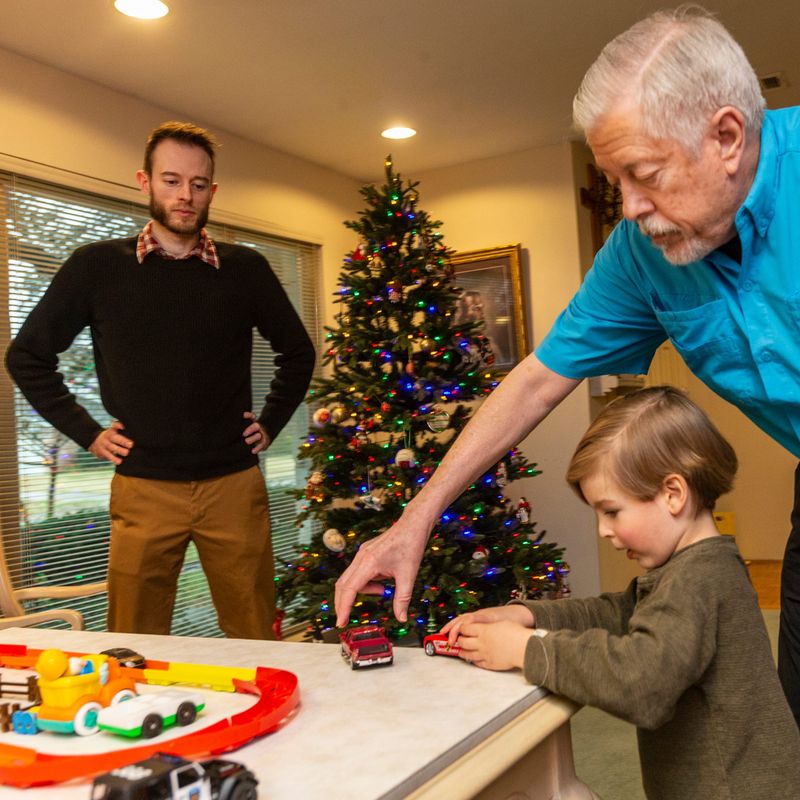
Grandparents often find joy in showering their grandchildren with gifts, yet an excess can lead to unintended consequences. Imagine a cozy living room piled high with bright, colorful toys. The abundance might thrill a child initially but can foster materialism.
In moderation, gifts can show love, but too many may overshadow deeper values such as gratitude and contentment. Grandparents must strike a balance, offering thoughtful presents that complement parental guidelines.
Including experiences, like a trip to the zoo, creates lasting memories without clutter. A mindful approach ensures joy without spoiling children.
2. Ignoring Parental Boundaries
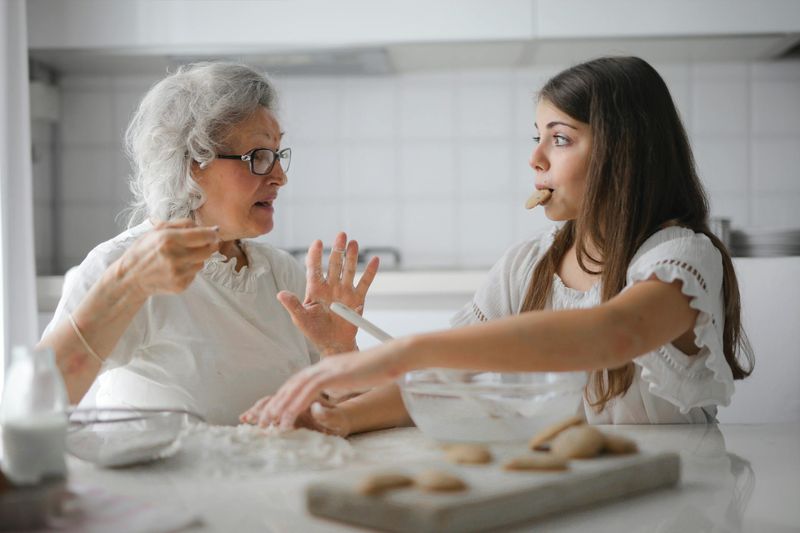
Navigating the line between helpful support and overstepping boundaries is challenging for grandparents. Picture an elderly man in a sunlit kitchen, eyebrows furrowed as he hears a young couple’s rules.
Well-meaning advice can sometimes conflict with parental decisions, causing friction. Grandparents may inadvertently undermine authority by offering unsolicited opinions or breaking established routines.
Clear communication is vital. Understanding and respecting parents’ wishes fosters a united caregiving front. A harmonious relationship benefits all generations involved. Emphasizing open dialogue ensures grandparents contribute positively, without overstepping.
3. Resisting New Parenting Techniques

Change is inevitable, but some grandparents struggle with modern parenting methods. Visualize a kind elderly woman, puzzled by a contemporary parenting book in her lap.
Traditional wisdom often conflicts with new approaches, leading to misunderstandings. This resistance can create tension, especially when it disregards parents’ choices.
Embracing change and being open to learning fosters collaboration. By accepting new techniques, grandparents can bridge the generational gap. This willingness creates a supportive environment, blending time-honored wisdom with innovative practices for the children’s benefit.
4. Overemphasizing Past Experiences

Stories from the past enrich family heritage, yet excessive focus may overwhelm younger generations. Picture a nostalgic elderly man sharing faded photographs with a wide-eyed young girl.
These tales, though valuable, can sometimes overshadow the present, making children feel disconnected. It’s essential to balance storytelling with engagement in current interests.
Encouraging grandchildren’s pursuits while sharing family history creates a vibrant, relatable connection. This approach weaves past wisdom into present lives, fostering a sense of identity and continuity.
5. Being Overprotective
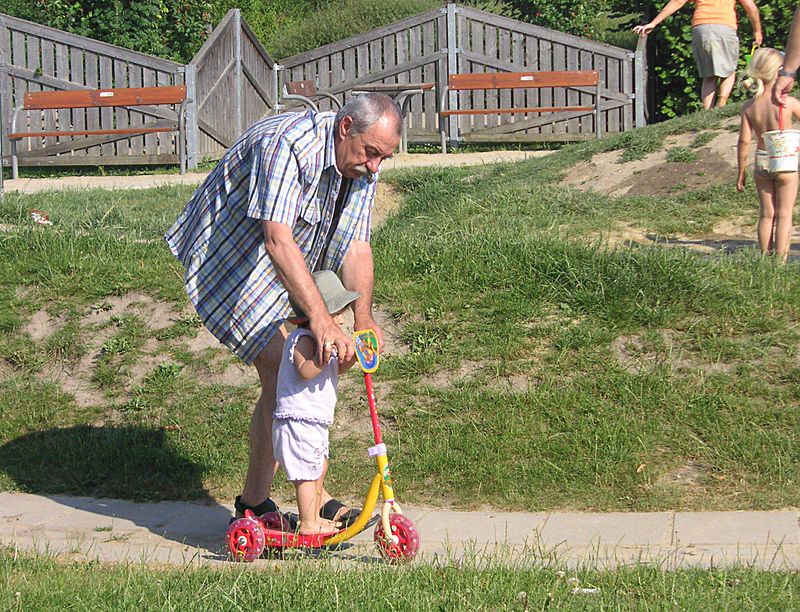
Grandparents’ protective instincts may lead to being overly cautious, limiting a child’s exploration. Visualize an elderly couple, worry etched on their faces, as they watch a child play in a sun-drenched park.
While safety is crucial, excessive worry can hinder growth and independence. Children need the freedom to learn from their experiences, even if it involves minor risks.
Finding a balance, grandparents can offer guidance while encouraging exploration. Creating a supportive environment fosters confidence and resilience in the grandchildren, ensuring they grow into independent individuals.
6. Spoiling with Food
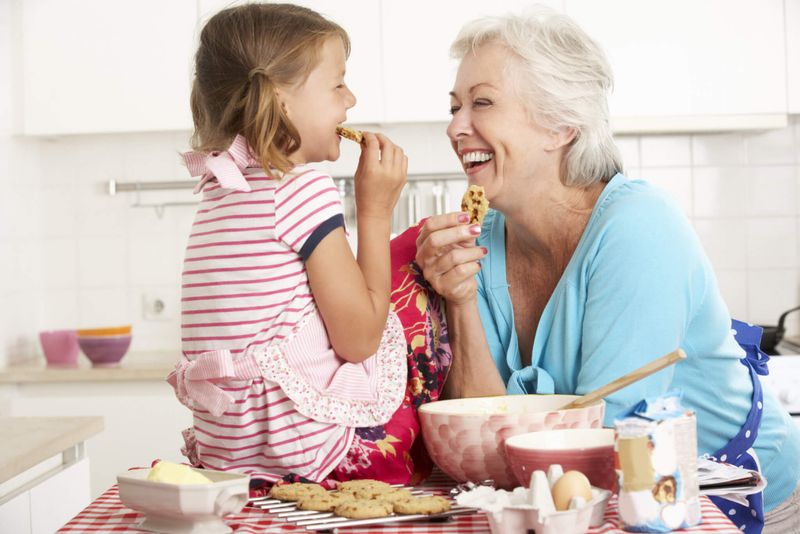
Food is a universal symbol of love, yet excessive treats can have drawbacks. Picture a cheerful grandmother in her cozy kitchen, presenting a table brimming with sugary delights.
While indulging grandchildren occasionally is heartwarming, constant spoiling may instill unhealthy habits. Balance is key.
Offering nutritious alternatives alongside occasional treats supports healthy growth. Grandparents can share recipes for wholesome meals, blending love with well-being. This approach nurtures a lifelong appreciation for balanced eating, ensuring children’s health and happiness.
7. Comparing Siblings Unfavorably
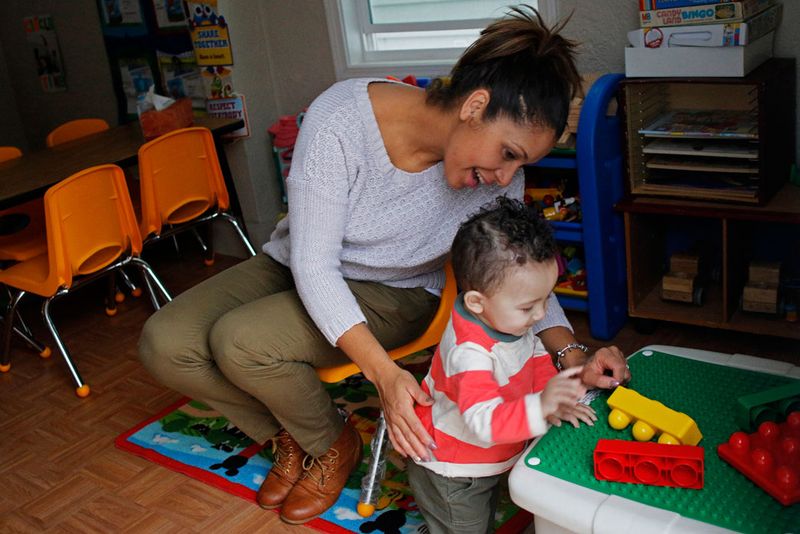
Comparison among siblings can unintentionally foster rivalry. Imagine a thoughtful grandfather observing two children, his brow furrowed with concern.
Noticing differences is natural, but verbalizing them may lead to feelings of inadequacy. Each child thrives through unique strengths and challenges.
Grandparents should celebrate individual abilities, nurturing a supportive environment. Emphasizing equality and encouragement fosters sibling harmony, avoiding competition. This approach respects each child’s individuality while promoting family unity.
8. Failing to Update Technology Skills

Technology evolves rapidly, leaving some grandparents feeling out of touch. Picture an elderly woman, perplexed by a smartphone, as her granddaughter gently guides her through the digital world.
Staying updated with technology enhances communication with family members. Embracing new tools fosters a stronger connection with tech-savvy grandchildren.
Learning together can be a bonding experience, bridging the generational gap. This willingness to adapt ensures grandparents remain actively involved in their grandchildren’s lives, enriching relationships with shared experiences.

Well, hello there!
My name is Jennifer. Besides being an orthodontist, I am a mother to 3 playful boys. In this motherhood journey, I can say I will never know everything. That’s why I always strive to read a lot, and that’s why I started writing about all the smithereens I came across so that you can have everything in one place! Enjoy and stay positive; you’ve got this!

